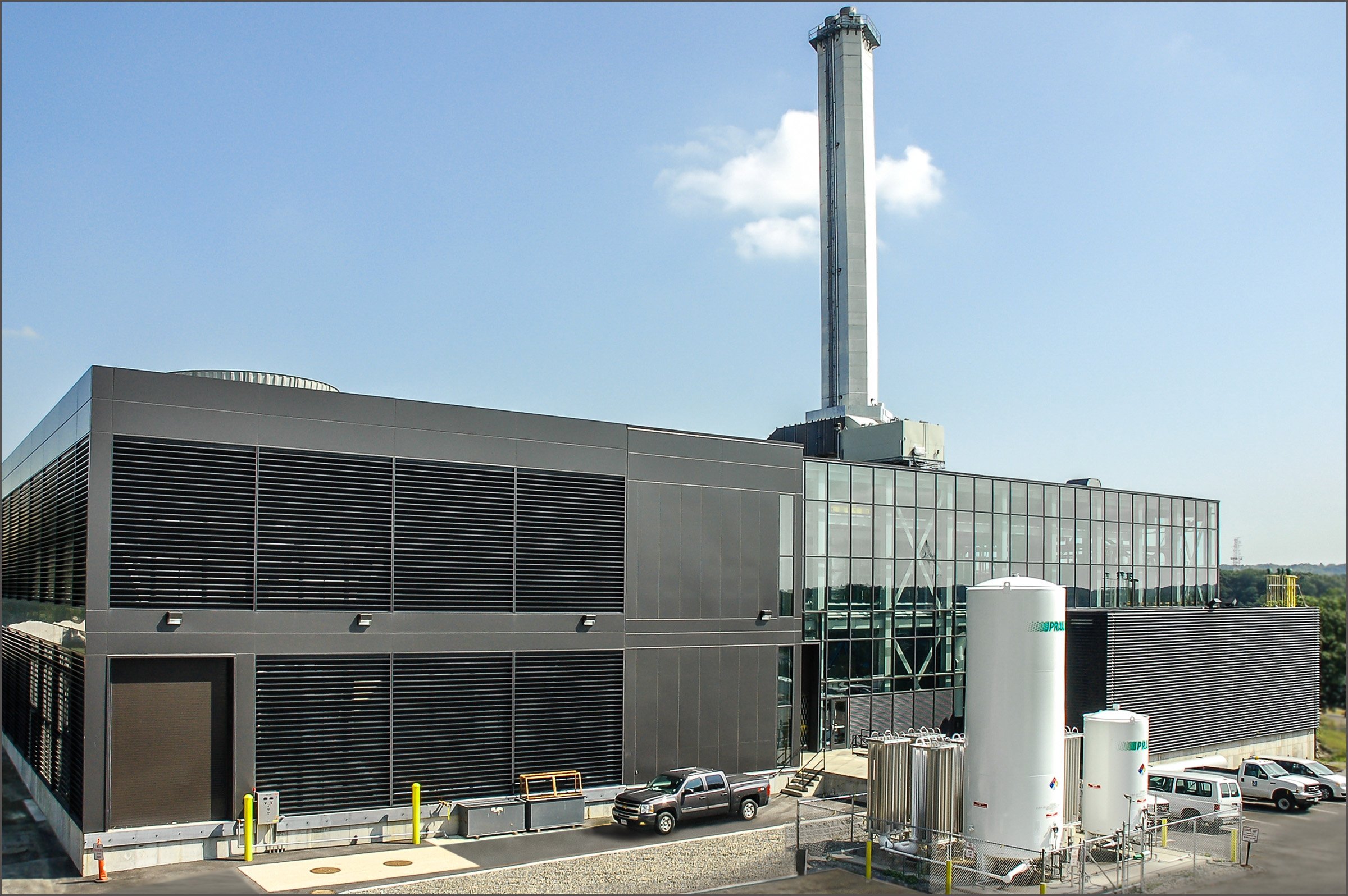Planning for a campus without fossil fuels
 UMass Chan launches decarbonization study
UMass Chan launches decarbonization study
For decades UMass Chan Medical School’s power plant has been seen as a source of strength and stability, providing virtually uninterrupted electricity, steam and chilled water to sustain the health care, educational and research operations on the Worcester campus.
Today, while updated and burning primarily natural gas, the campus power plant is a major challenge as UMass Chan begins to plan for meeting its long and short term decarbonization goals by increasing efficiency and reducing its use of fossil fuels.
“We have to address our greenhouse gas emissions, which is why we are moving forward with this project,” Suzanne Wood, associate director of facilities management for sustainability and campus services, said following the launch meeting for a new decarbonization study now underway on campus. “This study will give us a range of ideas and options to develop a balanced, phased and economically feasible approach that sustains our vital missions here.”
The year-long decarbonization study is the latest step in a multi-year effort on campus to become more energy efficient and sustainable, and to limit operational impact on the environment. Planning to decarbonize, Wood said, is both aspirational and in compliance with state mandates most recently spelled out in Executive Order 594, signed by Governor Charlie Baker on Earth Day in 2021 which requires state entities to reduce their greenhouse gas emissions by 95 precent by 2050.
“While there is no doubt this is a difficult goal, we are excited to see the study’s examination of innovative solutions that will help to decarbonize UMass Chan Medical School’s campus while still allowing it to meet its unique public mission,” Eric Friedman, director of the Leading by Example program at the Massachusetts Department of Energy Resources, said at the launch meeting of the decarbonization study.
After a public procurement process, UMass Chan selected ARUP, a global professional services firm with significant expertise in energy modeling and sustainability to conduct the decarbonization study. A team from ARUP’s Boston office will work closely with campus facilities management staff, coordinated by David MacNeil, senior mechanical project manager, and Kortni Wroten, sustainability and energy manager.
ARUP engineers will review historical energy use data and develop an hour-by-hour demand profile for the heating, cooling and electricity needs for every building on campus for an entire year. That’s 8,760 data points (the number of hours in a year) for the energy needs of every building.
With that information as a baseline, the ARUP team will evaluate existing mechanical and technological systems and operations on campus to develop a range of potential initiatives aimed at improving efficiency and reducing energy demand for each building. ARUP will then evaluate and present a range of scenarios to meet the power demands on campus in the future while reducing the use of fossil fuels.
GreenerU, the firm that helped UMass Chan develop its current five-year climate action and sustainability plan, will help facilitate public input and campus outreach for the decarbonization study. A task force of interested students, faculty and staff will meet monthly to be briefed on the progress of the decarbonization study and to offer input and suggestions. Anyone interested in joining the task force should email Kortni.Wroten@umassmed.edu .
A open house informational session for students, faculty and staff to learn more about the study and offer comments will be scheduled in early 2023.
